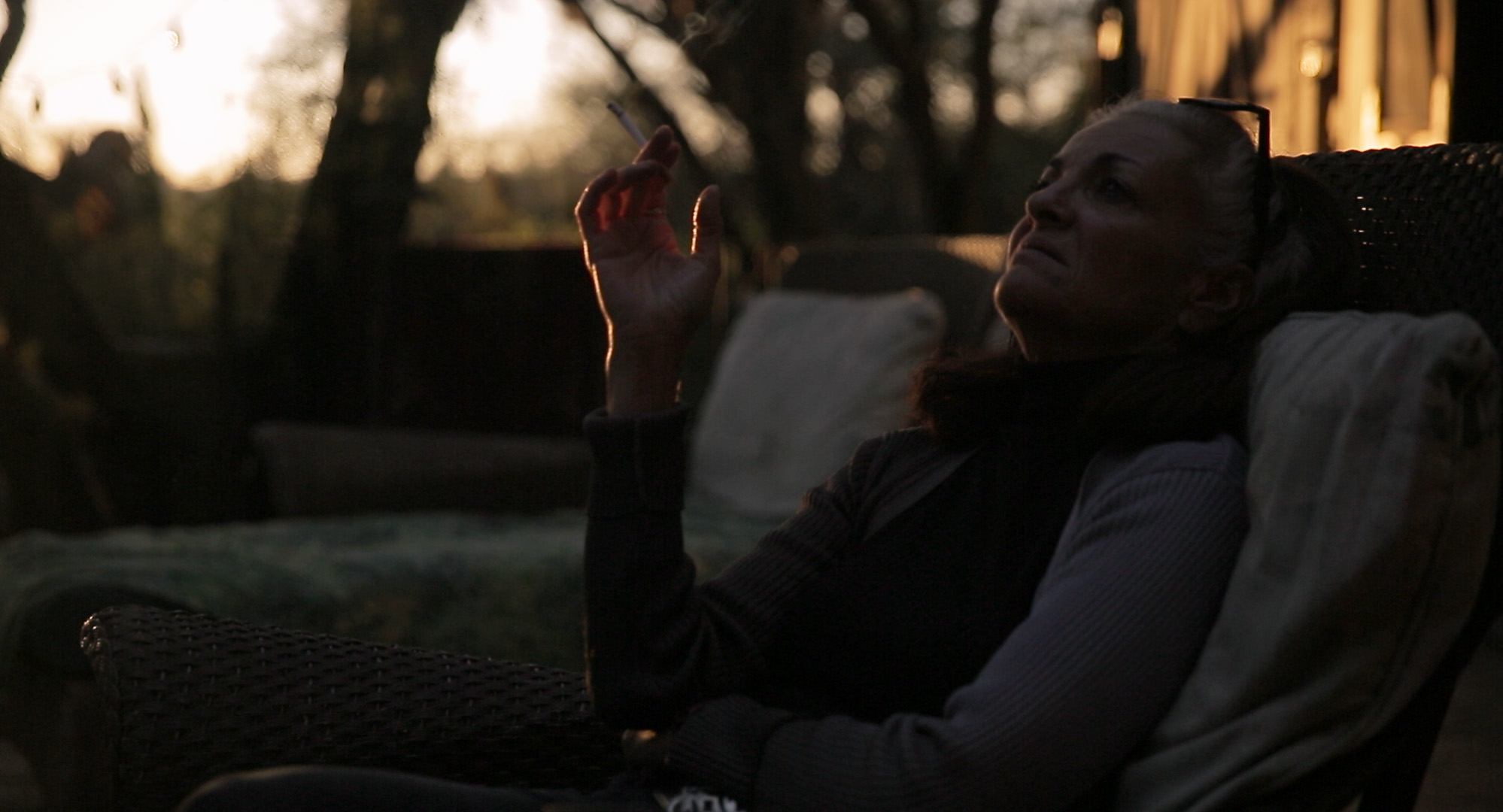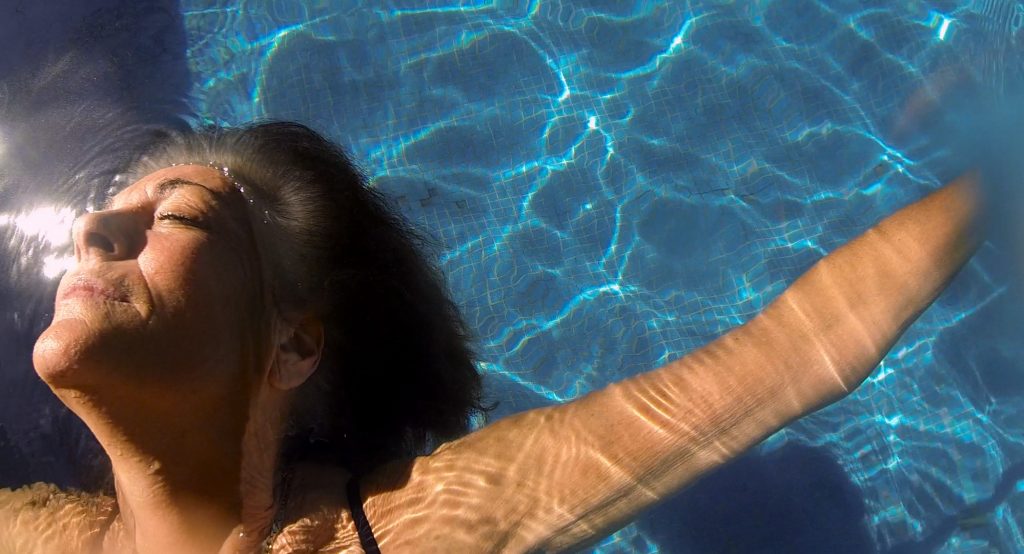When filmmaker Andrea Martínez Crowther first learned that her mother was suffering from Alzheimer’s, she began worrying that such a diagnosis would also be in her future. Immediately, she dreamed up one way she would cope: by filming herself. Knowing that she may not know herself, she’d want to create a kind of farewell film that would capture what living with Alzheimer’s does to a person’s sense of self. Theoretically sound and artistically evocative, she soon realized that such an endeavor would be futile: She could begin that project, but she would never be able to finish it. There was a beautiful tragedy in that sketch of a film project Martínez Crowther was imagining. And while that hypothetical self-shot documentary may never be made, the Mexican-Canadian filmmaker has kept its spirit alive in Observar las aves (Birdwatching).
She’s chosen to do this because she knows that as her Alzheimer’s sets in, she’ll lose traces of herself.
This fake documentary begins when Lena Dearna (Bea Aaronson), a renowned writer and widow, decides to pick up the family camcorder to chronicle her day-to-day life. She’s chosen to do this because she knows that as her Alzheimer’s sets in, she’ll lose traces of herself. She wants instead to cherish every moment and to capture it on camera: She shoots herself in the garden and in the kitchen, takes long looks at the sky and the clouds and all but lets us into her daily routine in the house she lives in by herself, in between calls from her son and her daughter, and reminisces about her long-gone husband.
A regal-looking woman who made a career out of scholarship writing and poetry, you slowly see Lena letting her guard down in front of the camera. It becomes a mirror and a confessional, a shoulder to cry on and a witness to address. But it all comes with its own problems. Artfully embracing her own amateurish grasp on filmmaking, Lena struggles with syncing sound and getting the new mic she bought to work, and oftentimes her focus is off, especially when her frustration with all the equipment gets the better of her. This is a passion project and no matter how dreamy and intellectual she may intend it to be, with quoted snippets from Montaigne and Proust in voice-over in English, French and Spanish, it soon becomes too unwieldy a project for her to take on by herself.
Enter: Andrea. Played by Martínez Crowther herself, this younger would-be filmmaker is recruited by Lena to help her out, not just in following her around with the camera but also to begin to cut together what the film will become. Soon, the steadiness of Andrea’s handheld camera takes over and the intercutting between poetic voice-overs and Super 8 family home videos starts to look like a perfect distillation of what Lena had first envisioned and what Andrea’s skills can provide. That’s when the tragedy of what’s unfolding before us, the very tragedy Martínez Crowther had anticipated start to come into relief: Lena starts becoming less and less lucid, with many an episode prompting Andrea to drop her camera and come to her aid.
Observar las aves, titled after Lena’s husband’s favorite pastime (birdwatching), is a poem of a film. It’s as raw as Lena and just as wrenching. Seeing her go from being co-director and narrator of her own life story to being a character unaware of what’s happening around her, eventually needing to say goodbye to the documentary she first envisioned, is all too painful, prompting many in attendance at Los Cabos International Film Festival to openly thank Martínez Crowther for so authentically portraying what it means to see someone succumb to Alzheimer’s. But the beauty of the film – and the reason it so resonates – is that it remains driven by the notion that Lena (like Martínez Crowther’s mother) took her farewell into her own hands. Much of that is owed to Aaronson’s masterful performance, which shuttles seamlessly not just within Spanish, English and French but within moments of levity and moments of heartbreaking pain.
Moreover, while the doc begins as a portrait of Lena, Andrea’s slow involvement in her subject’s life and work makes Observar las aves play like a chronicle of a blooming friendship. Before that becomes clear in the way Andrea becomes a surrogate daughter and caretaker to Lena, her love for Lena shines through in the way she shoots her. There’s a tenderness to the way she follows Lena around, catching her off-guard in quiet moments that let us see precisely what Lena initially wanted to capture: the fullness of her life.

Evocative and as personal as this kind of real-life documentary would likely be, Observar las aves is a love letter to women like Lena but also to women like Martínez Crowther, women who keenly understand the promise of a camera, the promise of a film: The promise of enduring and living on after death. The film is a poetic eulogy of someone not yet gone, which is precisely what makes it all the more enthralling and melancholy.
Observar las aves screened as part of Los Cabos International Film Festival.







